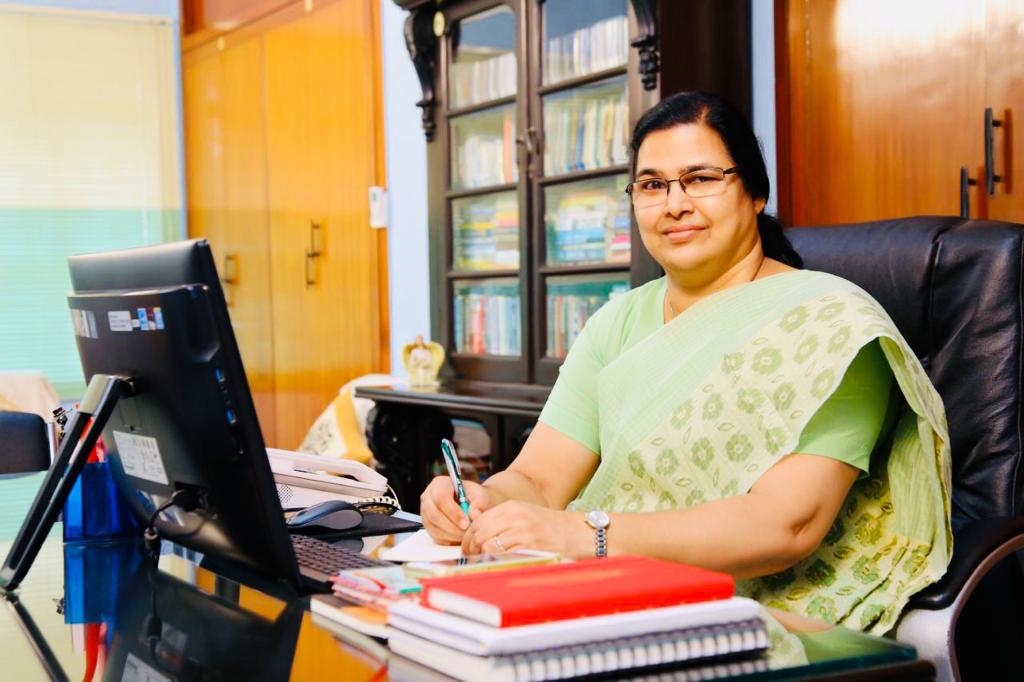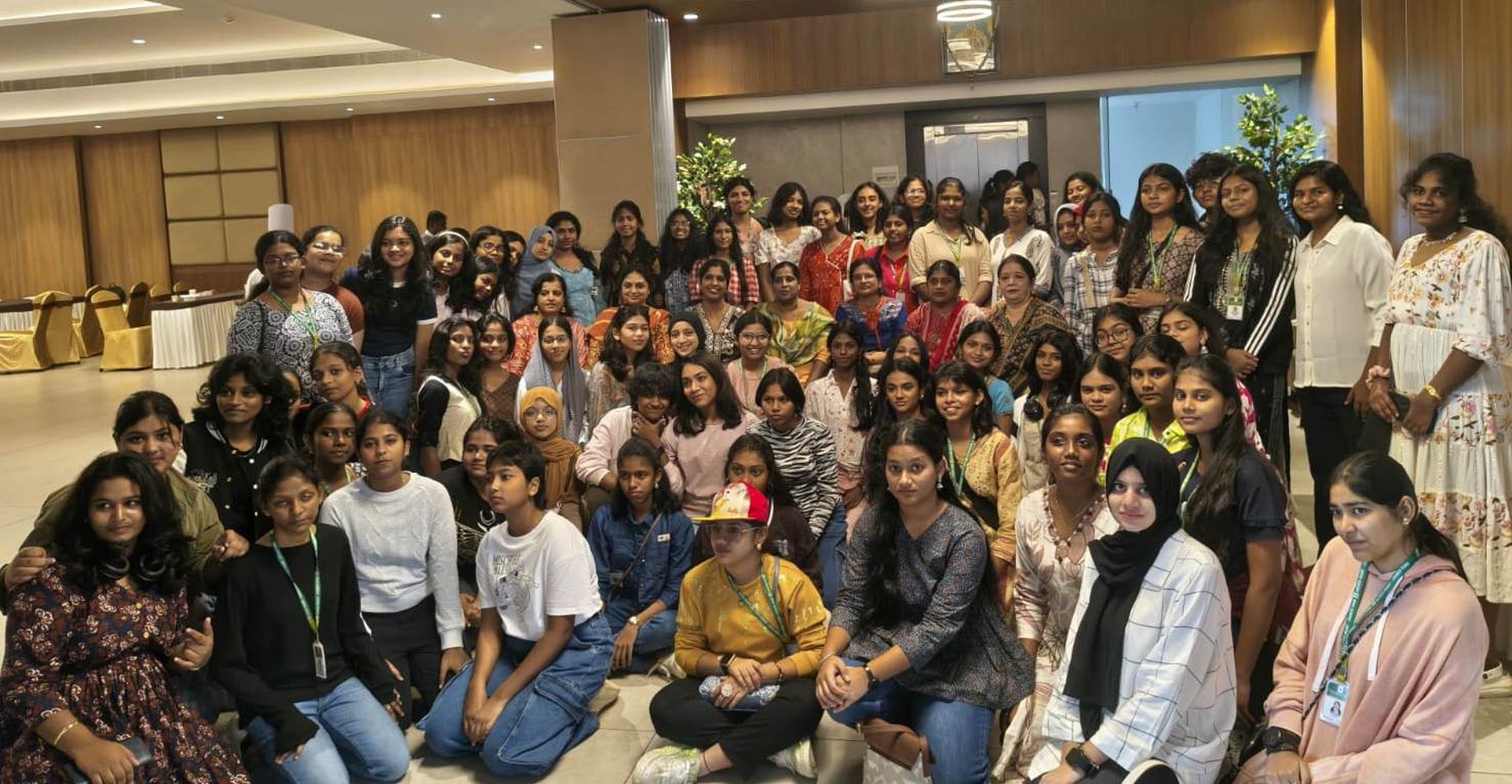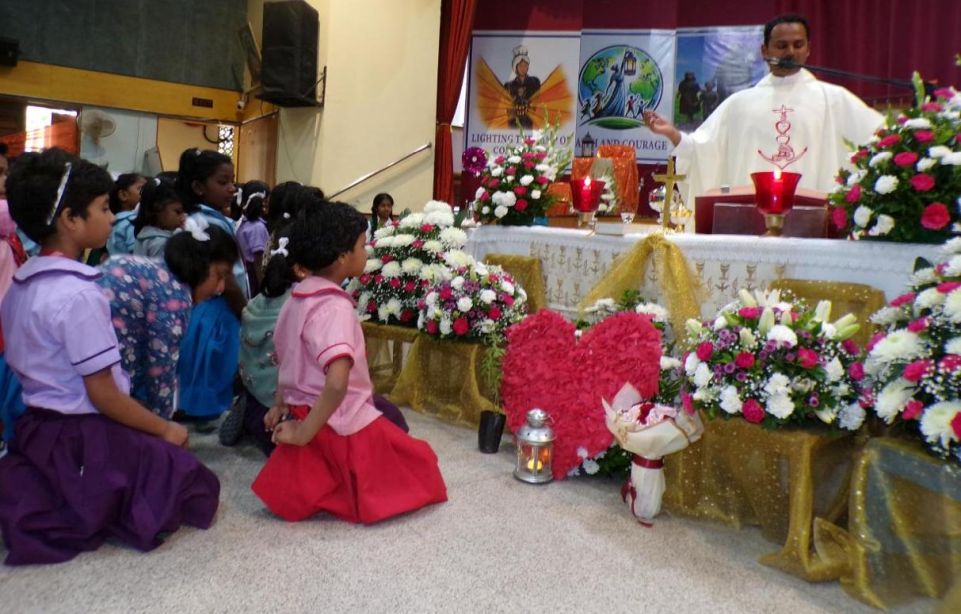
The Education System is undoubtedly the foundation of a nation, as it should result in more civilized, literate and empowered citizens who are consciously driven by ethics and moral values. India is a multilingual, multi-religious and multicultural society with a plethora of cultures. A strong base in social and emotional values is vital for the survival of any society. The focus of our system has always been towards managing issues at economical level, whereas the highlight on its influence on education is missing. The present curriculum has been able to develop business men and women, entrepreneurs, politicians, doctors, engineers, musicians and actors but fails to create empathetic and sensitive human beings, thus leading to increase of violence in the society, corruption, crimes, lack of respect for others etc. Thus in a liberal democracy like India, the line between what is considered political and what is considered moral is blurred. The educational curriculum followed today is meant to bring out the best professionals but there is no clear cut mandate on uplifting their socio-emotional skills.
In all our educational Institutions we are busy with teaching a number of subjects, engaging students in extra-curricular activities, multiple intelligence theories and pedagogies. It is immensely difficult to cut through the chatter and address the core questions: What skills should we equip our children with, so that they may excel in life, and be fruitful contributors to society? Further, how do we empower today’s youth to cope with the ocean of knowledge around them and help them to succeed in the hyper-competitive, technology driven world? The answer lies in ―Value Education and well-identified skills that we must equip our children with.
We need to equip our children with high socio-emotional skills, and make them highly sensitive to the society. The ability to analyze situations effectively (critical thinking skills) without emotionally getting affected (managing emotions) and bringing alternative ideas to solve the issues (problem solving) and coming on to deciding a way out (decision making) is equally or rather more important than having mere knowledge in Math and Science and pursuing a good career. Therefore, the focus today should be on generating curriculums and policies aiming to foster the right type of skills, attitudes and behavior that will lead to sustainable and inclusive growth.
Technology and learning went hand-in-hand and this amalgamation was utilized to the maximum during the pandemic year 2020. As we look at 2021, and the atmosphere showing signs similar to or worse than that of 2020, let us introspect how technology was incorporated into learning and brought parents, teachers and students under the same spectrum.
According to Forbes Magazine, 2020 was online learning’s biggest year. As of last year, 90% of students in developed countries were receiving classes online. As most schools scurried to come up with the best strategies and tactics to make sure their students do not end up being a part of a lost generation, there were a few revelations made as to what we should focus on alongside academics. As educators, it is important that we take note of these revelations and incorporate them into our curriculum. Let us look at what’s working in the online learning zone and the changes it brought about.
1. Learning beyond traditional curriculum
Since the advent of social media and gaming, most of the Gen Z’s leisurely time was spent with their phones and computers digitally. Parents tried to keep a check on their children’s online activities as most children did not know the dangers of the world online. With online learning becoming a norm and the time children used to spend in school also being translated online, there is lesser probability that a parent can keep their child in check completely. Which is why, it is more important now than ever to make children digitally responsible. Research shows that including online safety within the school’s curriculum is vital to help children in becoming safe and responsible users of technology, particularly if they are taught to manage risks instead of avoiding them online. Most educators and parents surveyed by Google for Education think online safety should be made a part of the curriculum. Alongside, we also need to shape our students for tomorrow. They need to inculcate life skills and be prepared to face the professional world. According to PWC, 91% of CEOs across the world feel they need to strengthen their organization’s soft skills to go along with digital skills. Parents and educators want children to have a more holistic education which goes beyond a standardized testing system to include social and vocational skills. This further develops their social-emotional skills and in the schooling system, such students turn out to be all-rounded individuals.
2. Taking care of Student’s socio-emotional needs
Speaking of social-emotional needs, the way these skills are inculcated is also something to take note of. Gone are the days these skills are imparted by ways of mere “dictation”. Children should be taught skills that take care of their socio-emotional needs through enjoyable streams. Research has shown that higher levels of emotional intelligence are connected with better leadership and ability to cope with pressure. It has also proved that students who feel physically and emotionally active tend to do better academically. The focus is being shifted from strengthening only academic skills to developing social skills in most parts of the world, mainly because educators can see the value these skills impart to children. The easiest way for schools to teach children about life skills is through issue-based stories. In fact, storytelling has been a profound medium to pass on values to children from generation to generation. Currently, issue-based stories are found not only in books, but are also widely presented through Audio-Visual (AV) media. Today’s children are drawn to audio-visual media and consider it as the most relevant and impactful medium of knowledge; driving a paradigm shift in education and completely redefining the very concept of literacy.
3. Innovations in particular applications suited for specific use
Though these innovations might have been around pre-pandemic, a lot of innovations were made concrete when online learning became the need of the hour. Applications like Microsoft Teams and Google Classroom conducted various webinars to help educators learn how to put these applications to use better. Technology changed the role the teacher played from directing to supporting and guiding, and the reliance on certain times and places that we expect students, particularly young students, to “do” in school. Because, all in all, students, no matter where they are and how old they are, should be able to make their way through their education and work journeys with the benefit of superior technical innovations that can more easily and quickly identify, respond, correct and expose them to deep learning.
4. Amphibious teachers
The term “amphibious” is usually used for an adaptive function. Teachers now have to juggle the online and in-school challenge which the advent of online learning brought. Every teacher faced this challenge- no one was prepared to talk into a camera for hours when they were used to communicating in an interactive atmosphere. They had to make sure students were engaged in their lessons, understood concepts and responded. They overcame it with ease and were mastering the secret to high¬-performing virtual classrooms. Then, when schools partially started in some parts of the world with some capacity, had to adapt to teacher both in-person and online; all within the span of a year.
5. Role of parents
One of the significant changes that came out of 2020 include the increase in involvement of the parent due to online learning. Since parents were home working remotely and children learning virtually, there was a different setup and scenario in most homes. They are considered a new “admission” or a “partner” in schools right now. Now, parents want to be more involved in their children’s education and technology is allowing them to connect with teachers. They are kept in the loop with much more ease. While there were many disparities between the parent and teacher with regard to how they viewed children earlier, the gap is bridged. “Collaboration between parents and teachers would not only be helpful for parents, but also be helpful for teachers to know more about the environmental conditions and the family situation where students are coming from, because most of the differences in student outcomes are actually shaped by families and not by schools.”-
As they say, change is the only constant thing. A 150-year old system had to taste this change through a global pandemic and educators and parents finally stepped up their technology to make sure children do not miss out. It was an inevitable step, nevertheless these changes will bring about more significant differences to our schooling system and the society in general for years to come. Today’s generation is exposed to personalized or individual attention in all walks of life. If education is provided to them in the traditional avatar of ‘one size fits all’ then there is a high probability that there will be very few students opting for higher education. The NEP-2020 envisages a need to reduce curriculum and to propagate learning as an interactive process based on practical learning. The focus is on the practice of concepts and making education more flexible, practical and diversified. The NEP-2020 visualizes school education to be a lifelong process of transforming information and experience into knowledge, skills, behaviours, and attitudes. Let’s hope for the best for our children.

Mysore Trip -2025
Students from stds. IX and X embarked on a delightful educational trip to My...

CHRISTMAS PLAY BY ..
The Christmas Play for the year 2025 was presented beautifully by the studen...

Pasumai Payanam Hu..
The students of Sacred Heart Matriculation Higher Secondary School, St. Ursu...

Presentation Day F..
The Presentation Day Feast Mass was solemnly celebrated by Rev. Fr. Reynold ...